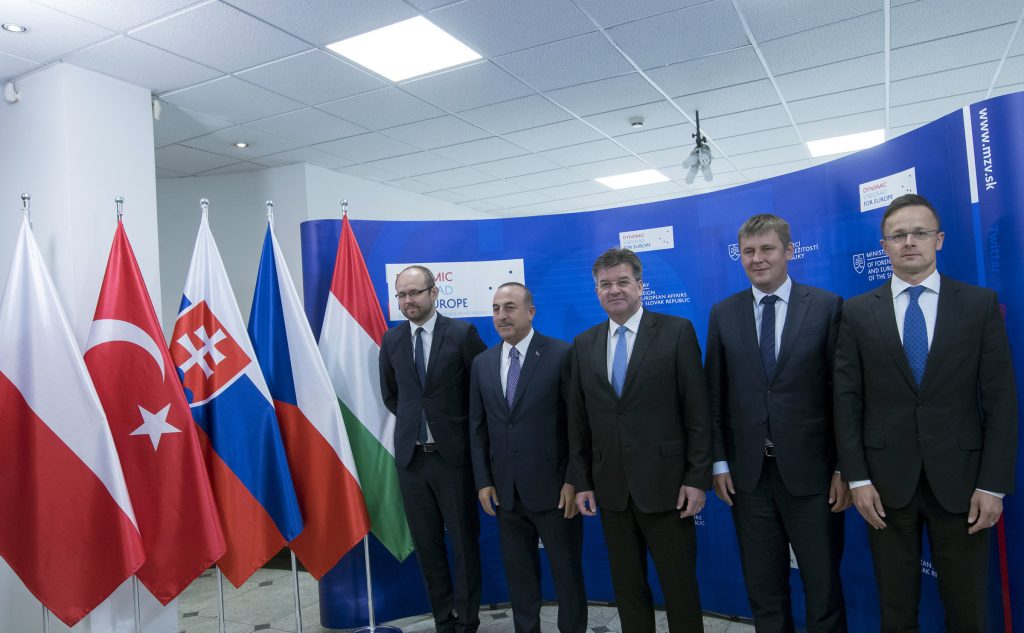Change language:
United Nations ‘promoting’ migration, terrorism, says Hungarian foreign minister

The United Nations “encourages terrorism and promotes migration” through its “very dangerous” policies, Foreign Minister Péter Szijjártó told a press conference in Bratislava(Pozsony) on Tuesday.
Speaking at a press conference after a meeting of foreign ministers of the Visegrad Four and of Turkey, Szijjártó said that a UN commissioner for human rights is planning to launch a procedure against Hungary in connection with a Syrian national sentenced in Hungary on terrorism charges.
The United Nations “should fight terrorism and terrorists, but the organisation is doing just the opposite thus encouraging terrorists,” Szijjarto said. “It is shocking that the UN has sided with terrorists and finds excuses for them,” he said. The UN “encourages the two most dangerous trends in the world: migration and terrorism, tendencies that reinforce each other,” Szijjártó added.
Szijjártó insisted that terrorism was on the increase and insisted that “the UN cannot be relied on”. Turkey, however, has a crucial role in managing the pressure of migration, he said, adding that migration was expected to increase, too, since “at least 35 million migrants in Europe’s neighbourhood are ready to set off”.
Answering a question about Turkey’s European integration, Szijjártó criticised “some countries” for being “hypocritical” and presenting different positions in public and when “being among themselves”. He urged that the EU should build a strategic partnership with Turkey and stop “playing such an unfair game”.
Slovak Foreign Minister Miroslav Lajcak said that the talks focused on the Middle East with special regard to Syria, Iran, migration, and the Israeli-Palestinian situation.
He called Turkey an important partner in terms of security, and thanked Turkey for observing its agreement with the EU on migration. Turkey’s EU accession is being blocked for political reasons, but the integration talks should not be dropped, he added.

Answering a question about Turkey’s integration, Czech Foreign Minister Tomas Petricek said that “the entry criteria must be met”.
Marcin Przydacz, Poland’s deputy state secretary for foreign affairs, said that issues in the Middle East or the Mediterranean “cannot be discussed without Turkey”.
Concerning Turkey’s EU integration, he said that “after Brexit we should demonstrate that apart from quitting, joining is possible, too”.
Mevlut Cavusoglu, the Turkish foreign minister, said that “Turkey has wished to join the EU for over 60 years and it has never said anything else than that it is working to meet the criteria”.
He said he was aware that the entry process was blocked for political reasons but added that “if the EU does not want us, it has to make a decision”.
Source: MTI







